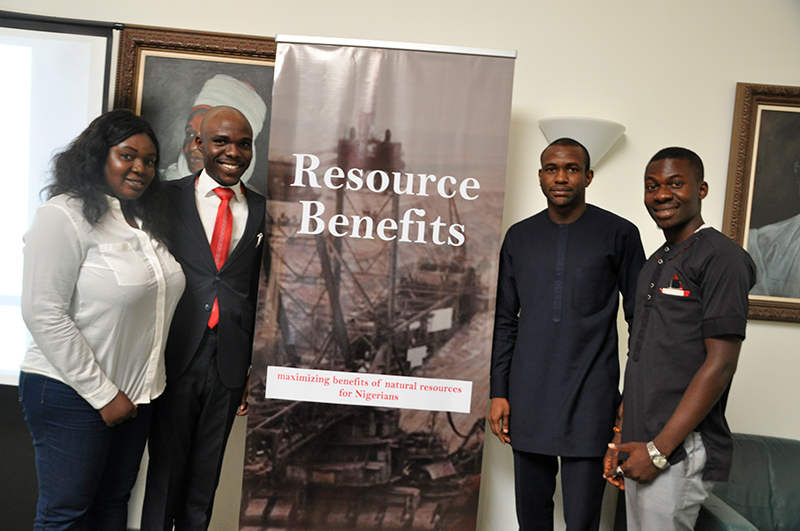
From Revenues to Benefits: New Nigeria Platform Informs and Empowers Extractives-Affected Communities
It is almost one year to the day since the launch of the Nigeria Oil and Gas Revenues: Insights from New Company Disclosures, a NRGI briefing exploring how payment-to-governments data from Shell and six other international oil companies operating in Nigeria can be used to hold the government accountable for revenues generated from the sector.
To launch the briefing, in early 2018 NRGI, in partnership with Connected Development, co-hosted around 20 Nigerian civil society organizations (CSOs) in Abuja to explore new ways in which they could use this data in their pursuit of accountability.
One of the participants was Olusegun Elemo, executive director of Paradigm Leadership Support Initiative (PLSI), a Nigerian CSO that promotes citizen participation in the Nigerian public audit process and findings to foster leadership accountability, good governance and development of rural communities.
Prior to the workshop, Olusegun was not aware that international oil companies operating in Nigeria were required to disclose the payments they make to Nigerian government entities. But upon viewing the data, he instantly saw its value to inform and empower the rural communities PLSI supports.
Last month PLSI launched Resourcebenefits.ng, a new platform designed to enable extractive affected communities in Nigeria to understand the resource revenue their government entities receive and monitor its utilization for the development of their communities. This platform draws on payment-to-governments data collected, standardized and presented on Resourceprojects.org, NRGI’s data repository of disclosures made under EU, Canada and Norway mandatory disclosure regulations.
In 2017, Total S.A. reported $46.2m as payment made to @NDDCOfficial for infrastructure improvement. #ResourceBenefits pic.twitter.com/68MnUzR9KF
— PLSI (@PLSInitiative) December 11, 2018
As well as presenting payment-to-governments data relevant to Nigerian rural communities, Resourcebenefits.ng has several interactive features designed to promote greater community engagement and accountability over extractive revenues. These include:
- Niger Delta Development Commission (NDDC) Projects Monitor. PLSI supports citizens to track and report on NDDC projects in the Niger Delta that are designed to benefit the local communities to ensure the money the commission receives from oil companies is used efficiently, effectively, and economically for improved service delivery.
- Share Extractive Impacts. The platform provides a space for community members to voice any negative impacts they have experience as a result of the extractive activities in their area.
Olusegun Elemo stated that “Resourcebenefits.ng leverages on technology to communicate these data in the most creative and simplified form to empower Nigerian citizens with necessary information required to demand accountability from public officials and institutions on extractive revenues collected. PLSI sees these payments to governments data as the game changing addition to Nigeria’s extractive industries.”
The launch of Resourcebenefits.ng demonstrates the value of payment-to-governments data to citizens in resources-rich countries as an informational and accountability tool. It also reinforces the need for more work on the part of extractive companies, regulators in the EU, Canada and Norway and Publish What You Pay coalition members to increase the awareness of and accessibility to such data.

Alexander Malden is a governance associate with the Natural Resource Governance Institute (NRGI).
